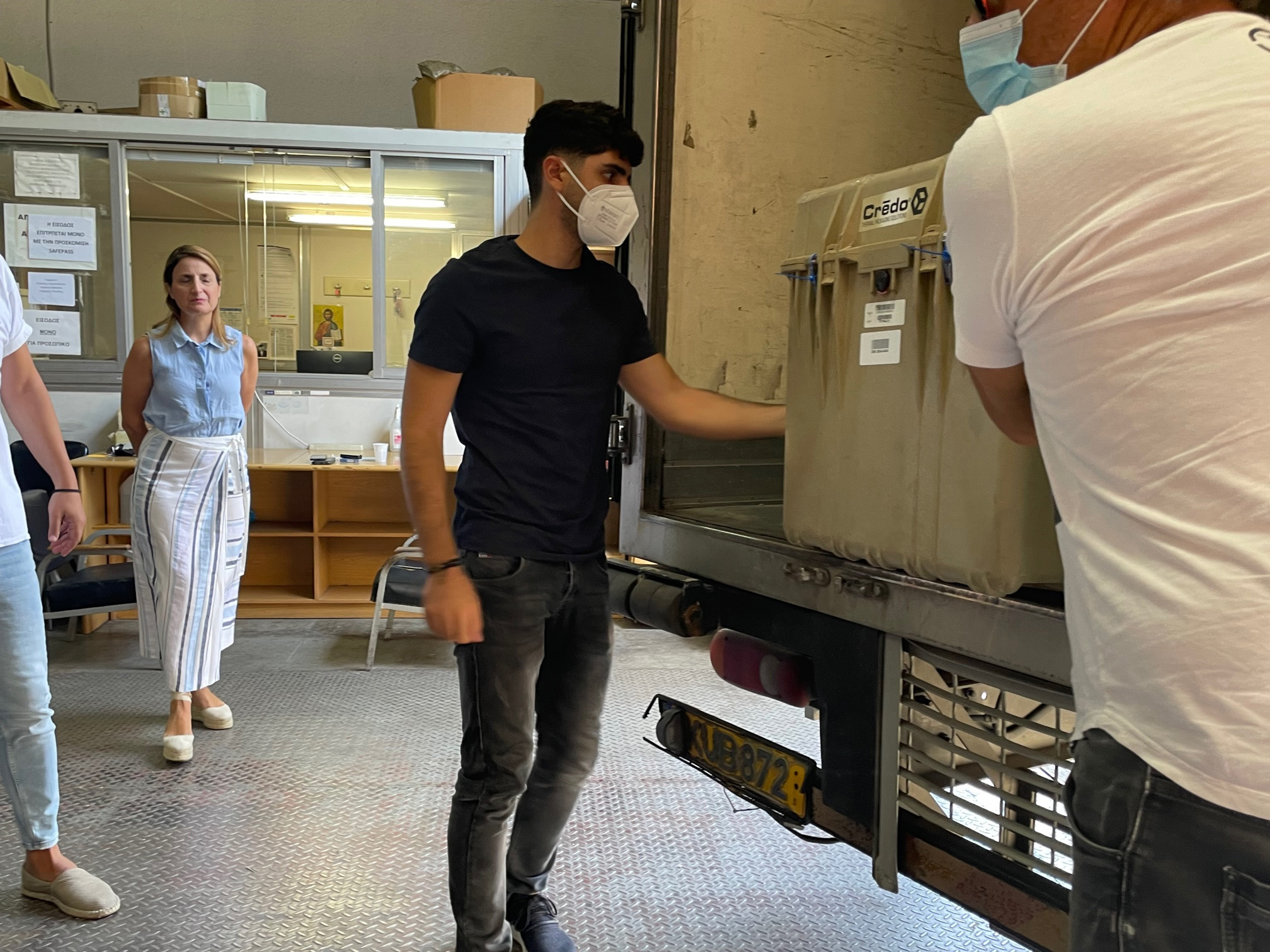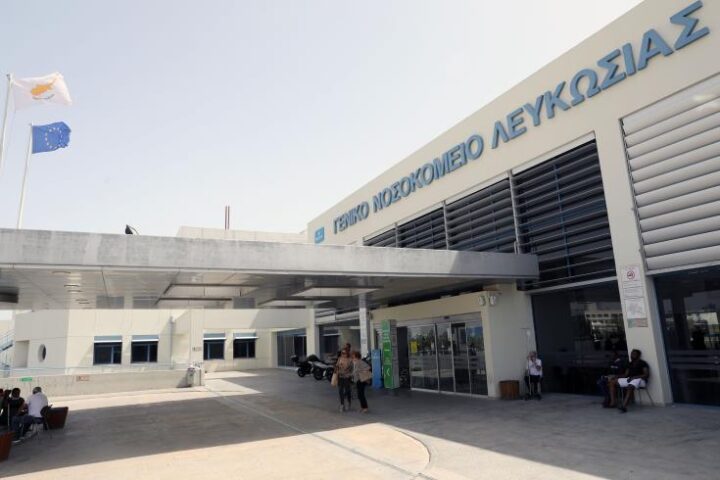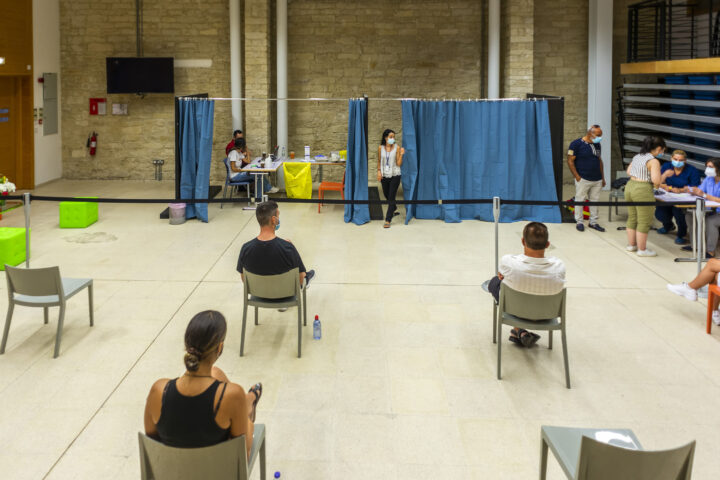All three people who tested positive for monkeypox are responding well to their treatment, said the Health Ministry on Monday, after the first vaccinations against the virus were carried out.
According to Health Ministry spokesperson Konstantinos Athanasiou, two more monkeypox cases identified are being treated in isolation, while three people have been vaccinated against monkeypox.
Vaccinations were carried out on close contacts of the first cases identified last week.
Athanasiou told the Cyprus News Agency (CNA) that initially, seven had expressed their interest in getting vaccinated, with only three coming forward to get jabbed.
Authorities have advised that close contacts and health workers dealing with monkeypox cases get vaccinated. The vaccine is administrated in two doses, 28 days apart.
On Friday, health authorities detected two more cases of monkeypox; a day before, 1,260 vaccines arrived on the island.
Two men aged 20 and 30 who tested positive had recently arrived on the island. The first case also had recently travelled abroad.
The two men are being treated at the Eden rehabilitation centre in Tersefanou, as they do not need hospitalisation.
Health Minister Michalis Hadjipantela said the two new cases of monkeypox were tourists.
He said, “there is a vaccination protocol; we must be careful and vaccinate the people who need these vaccines because we are not talking about mass vaccinations as was the case with coronavirus”.
“There is a very reduced number of vaccines, and we must use them very carefully.”
Another batch of vaccines is expected to be delivered once the current number allocated to Cyprus has been depleted.
The vaccine will be offered to healthcare workers who deal with monkeypox incidents and the relatives and people who have been in contact with confirmed cases.
What is monkeypox
Monkeypox is a rare viral infection related to the smallpox virus and mostly occurs in Central and West Africa tropical regions.
It was named so because it was first discovered in a monkey in the late 1950s, while the first human case was recorded in the 1970s.
Primary transmission is described mainly through contact with infected wild animals (primates or rodents) in areas of Central and West Africa or with infected companion animals.
Cases of secondary transmission from person to person are through the respiratory system after inhalation of large droplets and contact with the patient’s skin lesions or with contaminated objects (bed linen or towels used by a patient).
The transmissibility of the disease from human to human is considered low.
The majority of people infected with the virus are asymptomatic.
For people who will develop symptoms, these appear 5-21 days after infection (most commonly around day 12).
These may include fever, headache, myalgias, back pain, swollen lymph nodes, chills and weakness.
The WHO said that more than 18,000 new cases of monkeypox have now been reported.
Of the 78 countries, more than 70% of cases were reported in the European region and 25% from the Americas.
So far, five deaths have been reported, and about 10% of cases are admitted to hospital to manage the pain caused by the disease.










